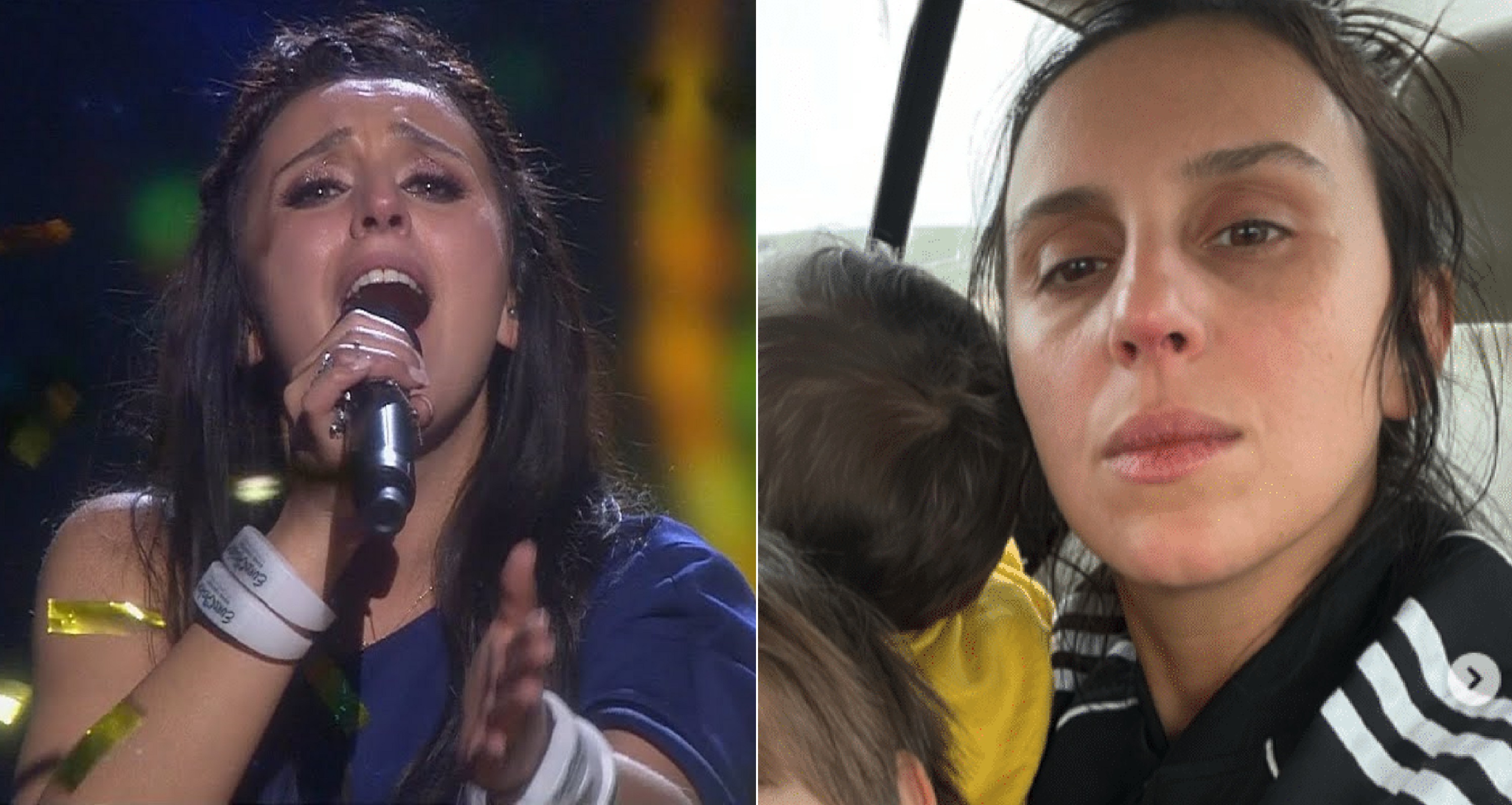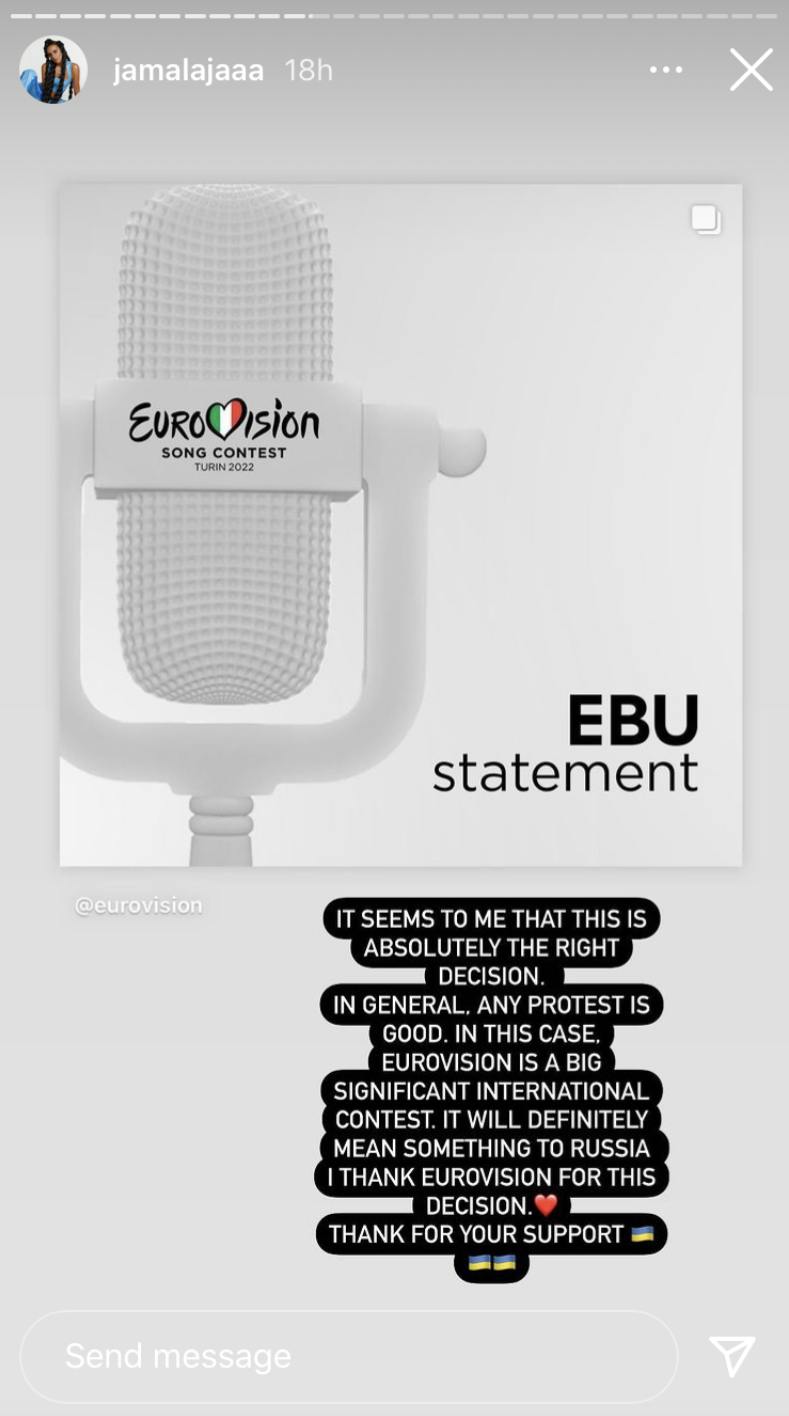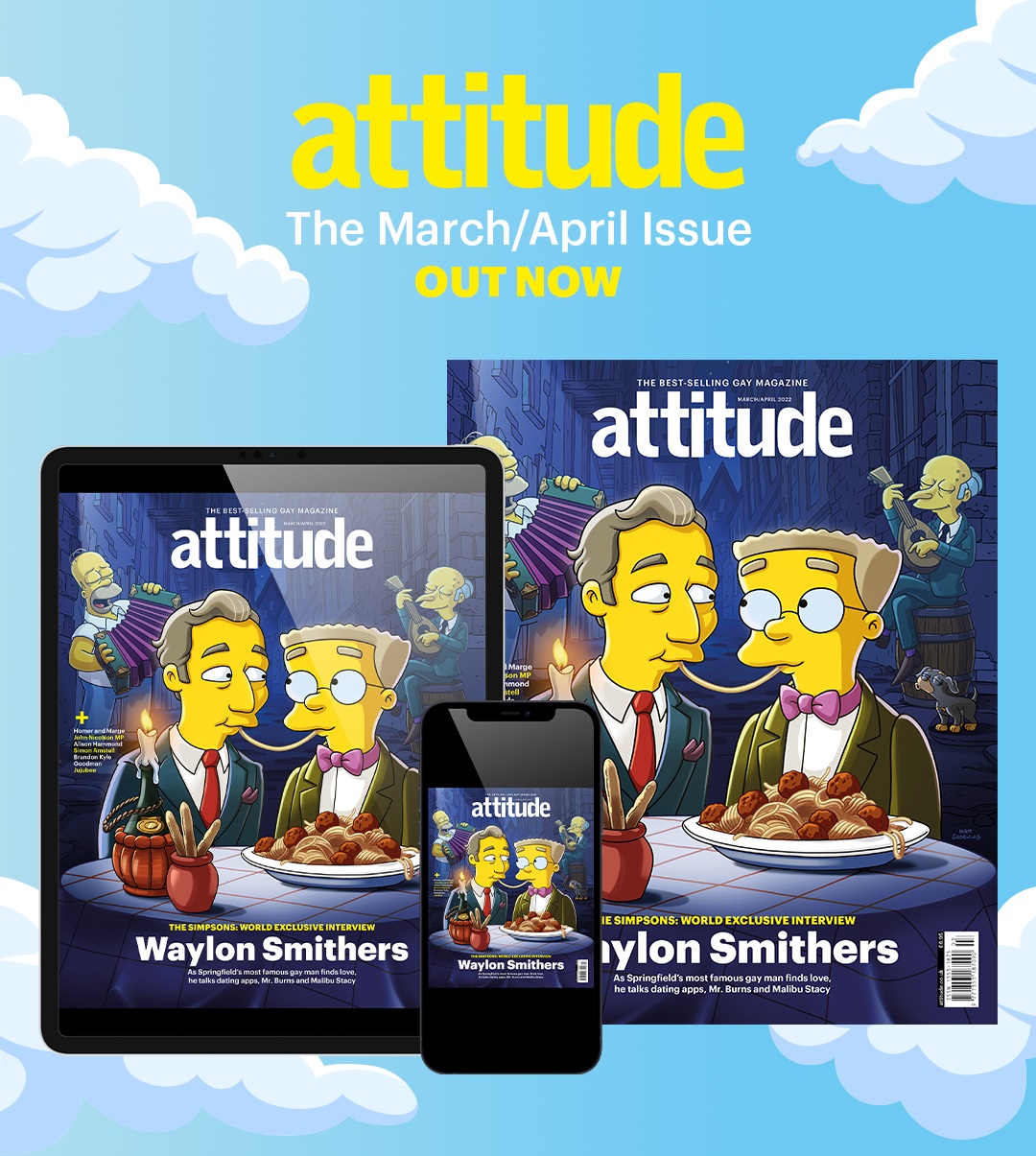Eurovision winner Jamala praises decision to ban Russia from contest as singer flees Ukraine with family
"This is absolutely the right decision", says the '1944' singer, who won the contest in 2016.

Words: Alastair James; pictures: YouTube/Eurovision Song Contest and Instagram/@jamalajaaa
Eurovision winner Jamala has welcomed a ban on Russia competing in this year’s competition following the invasion of Ukraine.
Russian troops first entered the country on 24 February after a mass build-up of troops and equipment on the border with the Eastern European country for months.
Taking to Instagram on Monday (28 February) the Ukrainian singer, who won 2016’s contest with her track ‘1944’, posted her response to a statement from the European Broadcasting Union (EBU) announcing a ban on Russia for the 2022 competition.
“Any protest is good”
In her Instagram stories, Jamala said: “It seems to me that this is absolutely the right decision. In general, any protest is good. In this case, Eurovision is a big significant international contest. It will definitely mean something to Russia. I thank Eurovision for this decision.”
She also thanked followers for their support as she fled her home country. In an Instagram post, Jamala said she had been on the road escaping for 4 days in the car and showed images of people crammed into makeshift shelters and buildings after being hit by missiles.

In its statement, the EBU said the decision to ban Russia had been made following by the Eurovision Song Contest’s governing body, the Reference Group, and it had been “based on the rules of the event and the values of the EBU.
“The decision reflects concern that, in light of the unprecedented crisis in Ukraine, the inclusion of a Russian entry in this year’s Contest would bring the competition into disrepute,” it continues.
View this post on Instagram
Speaking to Israel’s KAN news on Monday, Jamala was able to confirm she had made her way to Istanbul Turkey with her two children. She is staying with her sister. She told the news station that she still didn’t feel safe after a fake news campaign in Russia when she performed at Eurovision in 2016.
She also said she had heard rumours of a list of people who were targets for Russia and had been worried about being one of them. The ‘1944’ singer also revealed she decided to leave on 24 February, as the invasion started.
“I left my husband and my father’s husband,” Jamala says clarifying they helped mothers and children cross the border.
זמרת על הכוונת | ג’מאלה, זוכת האירוויזיון האוקראינית שנמלטה מארצה בריאיון ל-@mayarachlin: אני לא מרגישה בטוחה גם עכשיו. סימנו אותי, פחדתי שאהפוך למטרה. מצפה מהקהילה הבין-לאומית שלא יהיו אדישים. מודה לאירוויזיון על ההחלטה להדיח את רוסיה מהתחרותhttps://t.co/UtIl7HqwTY#ערבערב pic.twitter.com/TKoyqMBYlm
— כאן חדשות (@kann_news) February 28, 2022
In 2016, Russia was favourite to win the competition before Jamala swept to an unexpected victory with her song ‘1944’, describing the deportation of Crimean Tartars by Soviet Union leader Josef Stalin in 1944.
Coming just two years after Russia’s annexation of Crimea in 2014, the symbolism of Ukraine’s entry was not lost on voters, despite Eurovision’s ban on ‘political’ songs.
Russia has also been banned from the FIFA World Cup as well as all FIFA and UEFA football competitions.
Attitude’s new-look March/April issue is out now.

